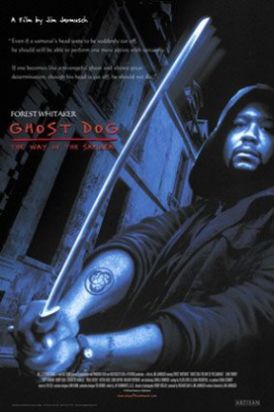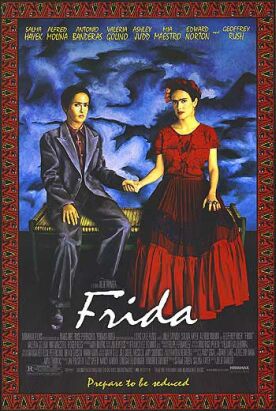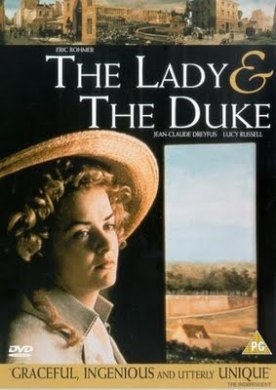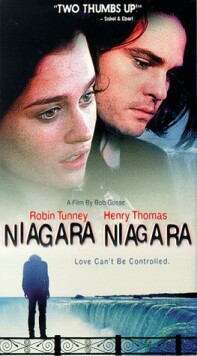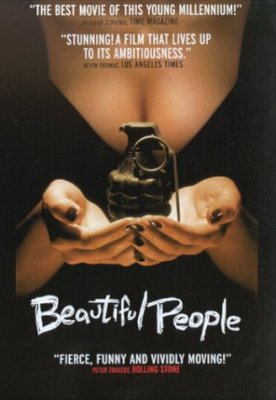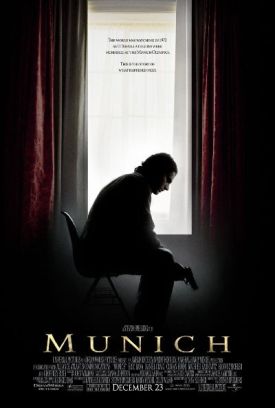Ghost Dog: The Way of the Samurai
Ghost Dog: The Way of the Samurai, directed by Jim Jarmusch, is quirky, witty, fun, intelligent, without ever quite being a great movie. It lacks the urgency of great films, films that create their own forms by the power of what they have to say. Jarmusch is really as interested in his little post-modernist bag of tricks—license plates from “The Industrial State,” for example, or a sign reading Alighieri Realty or a girl who impassively watches her improbable, much-older boyfriend being shot and then hands the copy of Rashomon she has been reading to the murderer. “Ancient Japan was a strange place,” she says. “You can have it, I’m finished with it.” Clearly, Jarmusch country is as much a Never-never Land as The Industrial State, and the wry pleasures he derives from constructing it are (unless I’m missing some connections) continual distractions from what he has to say.
This is a pity, because what he has to say is of absorbing interest. How, that is, is it possible for a man to live according to a standard in a world without standards? The film’s hero, known only as Ghost Dog (Forest Whitaker), is a free-lance assassin who lives with his homing pigeons on a roof-top in an anonymous urban slum. His only friends are a Haitian ice cream truck driver called Raymond (Isaach De Bankolé) who only speaks French, as Ghost Dog only speaks English, and a little girl called Pearline (Camille Winbush) whom he meets in the park and with whom he discusses literature. He confides in Pearline that “I never understand a word he [Raymond] says,” but he understands more than he thinks he does.
Ghost Dog’s own favored reading is the 18th century Japanese text, Hagakure: The Way of the Samurai, and he tries to live his life according to its precepts, several of which Jarmusch quotes as a sort of punctuation to the film. One of these is: “Not to forget one’s master is the fundamental thing for a retainer.” Ghost Dog has chosen as his own “master” one Louie Botticelli (John Tormey) an Italian gangster who once saved his life. Louie and his fellow gangsters are like a geriatric version of the Godfather or Goodfellas mob, wallowing in their stereotypes even as they comically deviate from them. At one point, the landlord of the Chinese restaurant where they hang out angrily demands three month’s rent. “What kind of operation you guys running here anyway?” he asks.
Louie doesn’t understand all Ghost Dog’s talk of “masters” and “retainers,” but he is happy to commission mob hits from time to time, one of which sets the action of the film in motion. Even in a film so largely symbolic and atmospheric as this one is, I can’t but think it a fault that this incident is so ill-explained. Louie, acting for his mob bosses, commissions a hit on Handsome Frank (Richard Portnow) for screwing the boss’s daughter. But once Frank, a made guy, is dead, the bosses turn around and decree that Frank’s killer must be killed. Such treachery seems to be a natural part of this world, so I guess Jarmusch doesn’t see any need to explain it. Louie grumbles about it—“Everything seems to be changing. around us….Nothing makes any sense anymore.”
Naturally, he is prepared to carry out orders anyway until Ghost Dog, with whom he only communicates by carrier pigeon, surprises him and kills his accomplice. “I’m your retainer,” he says. “I follow a code.”
“Is that why you have that f****** big gun to my head?”
“I don’t mean no disrespect,” says Ghost Dog and shoots Louie in the shoulder so he won’t get into trouble with the bosses.
Later he has to shoot him there again. “You shot me in the exact same place!” cries Louie.
“I’m your retainer; I don’t mean no disrespect, “ says Ghost Dog again. “I don’t want to put too many holes in you.”
The other mob guys are not so lucky. Ghost Dog kills them all. But it then devolves on Louie, as the last survivor, to avenge the others, and in a final scene meant to summon up images of “High Noon” style gunfights, Louie and his retainer face each other in an empty street. Typically, Jarmusch has to tell us what he is doing. “This is the final shootout scene,” says Ghost Dog. “It’s very dramatic.” To Louie he says, “I understand. You have to avenge the death of your bosses, right? Well OK, then.”
Louie replies, almost apologetically: “It’s like you said. Better you than me, right? Nothing makes any sense anymore.” Even he has an obscure sense that both of them are bound by a code that seems an anachronism to the rest of the world. As Ghost Dog explains to Raymond, “A samurai must always stay loyal to his boss, no matter what happens. Me and him we’re from ancient tribes, and now we’re both almost extinct. But sometimes you have to stick to the ancient ways, the old school ways.”
Jarmusch’s use of hip hop and rap music is, I take it, meant to suggest a connection between this elegiac quality and the gang culture of the ghetto. Even Louie’s boss, the stone-faced Italian gangster, Sonny Valerio (Cliff Gorman), suddenly breaks into a performance of a few lines by his favorite rapper, Flavor Flave. That even the Crips and the Bloods may be said to live according to a code of honor like that of Ghost Dog I am entirely willing to believe, but the absence from the film of any actual gang members except the comically cinematic ones commanded by Sonny suggest that this is merely a bit of sentimentalism on Jarmusch’s part, a political gesture perhaps—like so much of rap itself. This is, like the exaggeratedly postmodern jokiness, a flaw in what is otherwise a funny and interesting meditation on that favorite conservative subject, the decline of standards.
Discover more from James Bowman
Subscribe to get the latest posts to your email.

